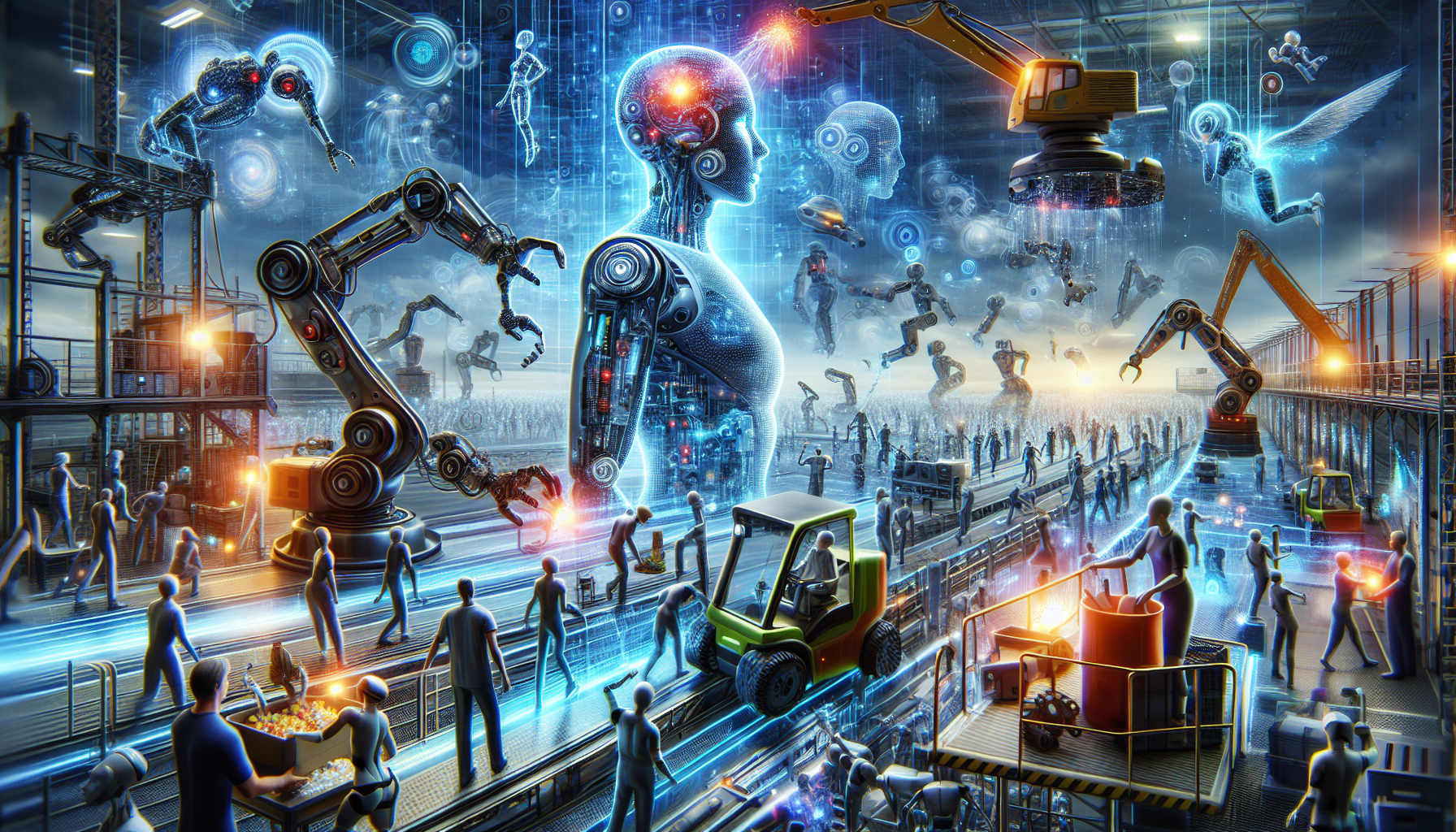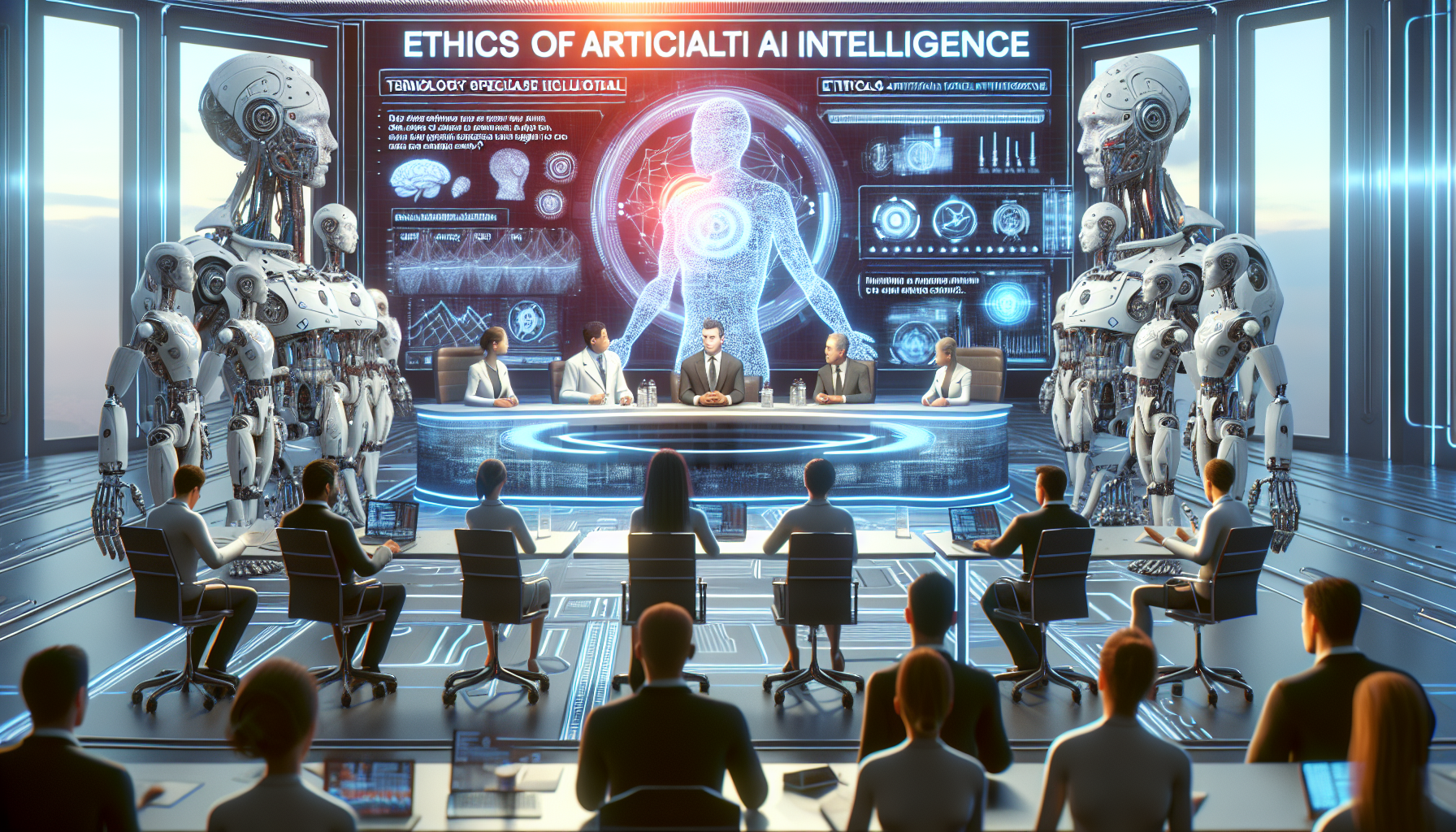Advertisements
We live in an era of rapid technological evolution, where artificial intelligence (AI) is increasingly present in our daily lives. One of the areas that has been significantly impacted by AI is the job market. The Work Revolution is in full swing, bringing profound and rapid changes to the way we work and relate to professional activities.
Advertisements
With the automation and robotization of various tasks, many professions are being transformed and even replaced by algorithms and intelligent machines. This means that the future of work will be very different from what we know today, with new skills and competencies being valued and demanded by companies. It is essential to understand these changes and prepare for what is to come.
In this context, it is important to reflect on the impact of AI on the job market and the opportunities and challenges that will arise for professionals. The ability to adapt to new technologies and develop skills that cannot be replicated by machines will be essential to secure a place in the job market of the future. It is time to rethink the way we approach work and prepare for a new era of transformation and innovation.
In this article, we will explore in more depth how AI is transforming the job market, the areas most impacted by this revolution, and what we can expect for the future. This is an essential topic for all professionals who want to remain relevant and competitive in an increasingly digital and automated world. Prepare yourself for the Workplace Revolution and discover how to stand out amid these changes.
Advertisements
Impact of Artificial Intelligence on the Job Market
The Work Revolution, driven by Artificial Intelligence (AI), is rapidly transforming the job market around the world. Automation and digitalization are reshaping industries, creating new opportunities but also eliminating traditional jobs.
Job Transformation
AI is impacting a wide range of industries, from manufacturing to the service sector. Many repetitive and predictable tasks are being automated, meaning that some jobs may be replaced by technology. However, AI is also creating new job opportunities, especially in areas related to data science, programming, and AI development.
- Process automation is increasing efficiency and reducing costs for companies.
- Technology professionals are increasingly in demand to develop and implement AI solutions.
- Skills such as critical thinking, creativity and problem solving are increasingly valued in the job market.
Professional Adaptation
To stay relevant in the ever-evolving job market, professionals need to adapt and acquire new skills. Lifelong learning has become essential to keep up with technological changes and ensure employability.
Investing in education and training is essential to prepare for the future of work. Collaboration between companies, educational institutions and governments is essential to ensure that professionals are prepared for the demands of the 21st century job market.

Furthermore, it is important to emphasize that artificial intelligence is not only impacting existing professions, but is also creating new career opportunities. Areas such as robotics, data engineering, cybersecurity and business intelligence are on the rise, demanding qualified and specialized professionals. Therefore, to keep up with the fast pace of transformations in the job market, it is essential to be open to new possibilities and constantly seek professional updates and improvement. Those who are able to adapt and stand out in this scenario of technological evolution will have a greater chance of success and professional fulfillment.
It is clear that Artificial Intelligence is playing a fundamental role in the reconfiguration of the job market, requiring professionals to be proactive and constantly seek to update and learn. The ability to adapt to technological changes and develop skills that are exclusively human, such as empathy, critical thinking and creativity, is becoming increasingly essential to stand out in a scenario where automation and robotization are on the rise. It is crucial that individuals are open to new possibilities and prepare for a future where collaboration between humans and machines will be the key to professional success. The work revolution is just beginning, and it is up to each of us to adapt and reinvent ourselves to keep up with this accelerated pace of change.
Conclusion
In short, the AI-driven Work Revolution is shaping the job market in unprecedented ways. Automation and digitalization are redefining industries, creating new opportunities but also challenging the relevance of certain traditional occupations. The transformation of jobs is evident, with repetitive tasks increasingly being automated, requiring professionals to acquire new skills, especially in areas related to data science and AI development.
Professionals’ adaptation is crucial to ensuring employability in a constantly evolving market. Investing in education and lifelong training has become essential to keep up with the demands of the 21st century job market. Therefore, collaboration between companies, educational institutions and governments is essential to prepare professionals for the future of work. In short, AI is transforming the job market in significant ways, and those who adapt and acquire new skills will be better positioned to thrive in this new work landscape.
As a result of the rapid technological evolution driven by artificial intelligence, it is inevitable that the job market will continue to undergo profound and rapid transformations. In this sense, it is essential that professionals are aware of the changes taking place and constantly seek to adapt and update themselves to remain relevant and competitive. The ability to continuously learn, develop unique and complementary skills to technology and collaborate effectively with intelligent machines will be increasingly essential for professional success in the current and future scenario. Therefore, it is necessary to embrace the Work Revolution with a proactive stance and be open to new possibilities, always seeking to reinvent oneself and stand out amidst the ongoing transformations.




